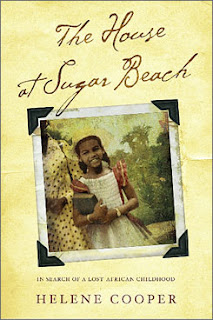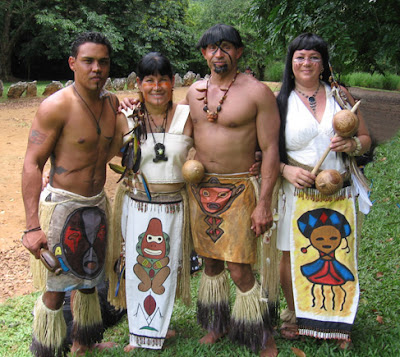Race, Violence and American Lives
I have been haunted for months. Everywhere I turn, there is a reminder of this country's deeply embedded racism, injustice and violence. It follows me like a wispy shadow that you can't quite see but you know is there. I have barely been able to write because I have felt emotionally blocked. The pain I feel witnessing the violence, injustice and media manipulations concerning the Ferguson, Missouri, Michael Brown, Eric Garner and Tamir Rice cases has been unbearable. When the news first broke I spent days crying and feeling paralyzed. It's not like it hasn't happened before. It's not like I don't know that I live in a country where racism is embedded within its very foundation. It's that I unconsciously expected the American justice system to suddenly become just with the world watching. Well, it didn't and these issues are not going away.
I don't believe it's a coincidence that just as Chicago and the rest of the country erupted in protests, I was teaching the particulars of racism, privilege and community ethics to a class of 18-year-olds. I also don't believe it's a coincidence that one of my students, a sandy-haired, blue-eyed ,creative writing major, hailed from Ferguson, Missouri. She cried as she explained how her friends were tasered and tear gassed for protesting the longstanding police brutality in her community. I challenged the class to come up with solutions that they thought would help address the complex problems of racism and police brutality We discussed the Criming While White Twitter revelations of the disparities that exist between how differently police treat white people compared to people of color. As a class of black, Latino and white students who hailed from all over the country, all but one of the 17 expressed distrust in the police and held little hope for any relief from racism. But they did have some ideas to help improve some things. Mandatory workshops where police had to face and examine racist beliefs. Cameras to monitor their behavior and an outside organization to monitor the cameras. An organization of citizens to monitor the police and hold them accountable for their actions. All helpful ideas that might move things in a better direction Although they were skeptical, I encouraged my students to help organize protests. None of these issues can be forgotten or buried under the next celebrity news cycle. I joined several organizations to help organize as well. I donated money. I signed petitions. I marched.
And then Charlie Hebdo happened. 12 French journalists and cartoonist killed in retaliation for insulting the prophet Muhammad in a satirical newspaper. It was tragic. It was a terrible loss of life. It was an act of terrorism. But so is the unrelenting attack on black lives. Somehow, the outrage about the loss of 12 French lives is bigger and more righteous than the loss of the 2000 Nigerian lives lost to the Boko Haram attacks right before the Charlie Hebdo attack. The loss of French lives who were simply practicing their right to freedom of speech somehow trumped the lives of poor, black Americans who dared to practice their right to life. The fact that even the slogan, "Black Lives Matter" was adjusted by some sensitive souls to "All Lives Matter" so that we can pretend that everybody's lives are treated with the same disdain and cheapness as black lives, completely illustrates the point. Black lives do not matter in this country. How else can this still be happening? How else can black bodies still be left in the street, to warn against any further uppity actions like questioning the law and demanding your rights, as they were during slavery and Jim Crow? "Until the killing of black men, black mother's sons, becomes as important to the rest of the country as the killing of white mother's sons, we who believe in freedom can not rest." The civil rights activist Ella Baker said that in 1964. Why does this statement still resonate 50 years later? I just spent the last year writing a book about Chicago blues, the music that documents African American history in this country. I had to re-visit slavery and Jim Crow and bombings and lynchings in order to tell the story of the music that forms a vital part of my culture and history. I did not think that I would have to face the living variations of those past horrors today.
But I do. So I spent Martin Luther King Jr's holiday reading over his strategies for combating racism and overall evil. I shared his teachings on Twitter and Facebook. I participated in a forum on diversity and cultural representation in travel writing on the Oubounding website. It was probably the healthiest discussion on racism in general and in travel in particular, that I've witnessed since I started travel blogging seven years ago. The silencing of our voices, the colonialist portrayals of developing nations and ancient cultures and the lack of diversity in most travel industry events were all addressed. Then I had a dialogue outside the forum with a fellow travel writer who is white. She told of how she was questioned about why she includes people of color in her interviews. How she has been asked to take down a post calling out the racist tendencies of the industry. Of the jobs she has lost because she refused. Of publications paying white writers for the same content they ask people of color to write for free. I'm not shocked by any of this but I'm appalled that it continues to happen so often. It has clearly shown me that the privilege that racism provides for white people is still being tightly held, despite the pronouncements otherwise. It points to the reality that if you do not want any part of racism and its benefits,you have to do more than be a good person and hope for the best.
When I was asked about what white people could do, I thought about all the MLK teachings. He said, "The hottest place in hell is reserved for those who remain neutral in times of great moral conflict." Not speaking up and calling out situations that are clearly wrong, unfair and racist means that you approve. Not using your power and privilege to help make a more balanced and inclusive playing field means that you're comfortable with the way things stand. Refusing to see injustice, becoming defensive and attempting to paint white people as victims means that you're willing to trade your comfort and privilege for the lives of those who suffer and die in a racist system. It's not about guilt or making people feel bad about themselves. That doesn't help anybody. It's about being a part of the change instead of the problem. It's a choice.
The illustration that tops this post demonstrates all of this on multiple levels. It shows three young victims of racism and violence that live on as martyrs for a movement. They are covering eyes, ears and mouths in reference to the principle of see no evil, hear no evil, speak no evil. It represents this country's legacy of turning a blind eye to the atrocities of racism. It also showcases the history of this struggle. The first boy who is covering his ears, is Emmett Till, the 14-year-old boy who was lynched in 1955 for whistling at a white woman. His killers were acquitted but his brutal murder galvanized the African American community and helped begin the Civil Rights Movement. Emmett was from Chicago, I interviewed his mother, Mamie Till Mobley about his murder and the details are so chilling that 14 years later, I can't stand to repeat them. A mother's pain from losing a child is always unbearable but imagine losing a child because he was the wrong color and not properly submissive. Imagine the mother of Trayvon Martin, the boy with his eyes covered, facing the loss of her son, killed in 2012 simply because he was black, and therefore threatening. His killer was acquitted. Mike Brown, with his hand over his mouth, is the most recent loss, killed last year because, yes, he was black and of course, threatening. His killer was acquitted. His mother must deal with the tragedy as conservative groups paint her son as a thief, a thug, a bully, who clearly deserved to die, his body left in the street for hours. As I'm writing this, I'm getting messages that the St. Louis police have just killed another unarmed, black teen. Global organizing is increasing and lines have been drawn.
"The time is always right to do what is right." Martin Luther King Jr.




Comments
Very good post. Intelligently articulated and backed-up by the evidence we've seen so far. Thanks.
Greetings from London.
Every country has a darker side to it, and this needs to be exposed honestly, and these problems -- which are like some terribly kind of disease -- need to be rooted out, once and for all.
What I just can't stand is selfishness and greed in any form, which I believe is the root cause of all this hate and violence against minorities.
And I must add that what you say about the Charlie Hebdo attack, Rosalind, echoes my thoughts exactly. Of course it was an abominable crime, but the imbalance in response to thousands being murdered in Africa, etc, is incomprehensible.
Yes, the U.S. has had a welcoming, successful image for decades but the reality behind that success is starting to be exposed. Of course, the U.S. isn't the only country with racism problems but these problems are not really being addressed so the effects are worse than some other situations.